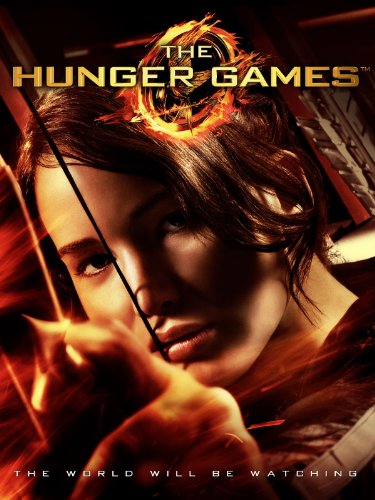All Nonfiction
- Bullying
- Books
- Academic
- Author Interviews
- Celebrity interviews
- College Articles
- College Essays
- Educator of the Year
- Heroes
- Interviews
- Memoir
- Personal Experience
- Sports
- Travel & Culture
All Opinions
- Bullying
- Current Events / Politics
- Discrimination
- Drugs / Alcohol / Smoking
- Entertainment / Celebrities
- Environment
- Love / Relationships
- Movies / Music / TV
- Pop Culture / Trends
- School / College
- Social Issues / Civics
- Spirituality / Religion
- Sports / Hobbies
All Hot Topics
- Bullying
- Community Service
- Environment
- Health
- Letters to the Editor
- Pride & Prejudice
- What Matters
- Back
Summer Guide
- Program Links
- Program Reviews
- Back
College Guide
- College Links
- College Reviews
- College Essays
- College Articles
- Back
The Hunger Games
In March 2012, people all over the world stormed the cinemas to see the blockbuster hit The Hunger Games. The film ranked a massive $152.5 million, making it the third top grossing movie of all time, behind Harry Potter and the Deathly Hallows Part 2, and The Dark Knight.
Based on the best-selling novel by Susanne Collins, The Hunger Games depicts a grim dystopian world, in which twenty four children from twelve districts, living in poverty, are caged in an arena and forced to fight to the death by the dazzling, extravagantly-dressed residents of the Capitol.
These twenty-four children, chosen at random, are plucked from their lives of hunger and deprivation, and flung into the darkly glamorous city that overlooks and rules the twelve districts. They are then presented to the citizens in a whirlwind of media blitz not unlike the way celebrities are showcased today, only to be given an exotic array of weapons and shipped to a remote location, caged off by an “invisible force-field”, where their struggle to the death is broadcasted to the entire world. This event is the annual Hunger Games. The people of the Capitol are encouraged to bet on favourites, while the families of the contestants back at the districts have to watch their children die.
And yet, even though these residents of the Capitol are very obviously the “bad guys” of this film, there is something about them that is both endlessly fascination and unnervingly familiar. Their ability to watch these children suffer as easily as we would watch MasterChef every night, while it seems revolting and inhuman, hits much too close to home, and something about this world that Susanne Collins creates leaves you with an uncomfortable feeling in your gut. It is at this point that you realise that we, our society today, are in this novel. We are the Capitol.
Okay, maybe we are pretty far from forcing children to kill one another for our personal entertainment, but the way the Capitol accepts the Hunger Games as a part of life, one that they have lived with for as long as they can remember, can most definitely be compared to the way we live today. There are people, right now, living in poverty. As you are reading this, there are children starving to death because they don’t have enough food to eat, and water to drink. And although we are aware of this, although we are all concerned by this, it still goes without saying that we care more about the individual things in our lives than this one huge, horrifying fact. But that does not mean that we are bad people. The citizens of the Capitol are not bad people. We are beings of culture, as are they. And as long as poverty is an accepted part of our culture, as long as the Hunger Games is part of theirs, they will not go away.
In The Hunger Games, Susanne Collins draws the perfect analogy for the way we live, while managing to capture our imaginations with a well thought out plot and a rich, engaging world. It is an excellent movie, and excellent book, and I am glad that at least some of the most popular fiction today also happens to be some of the best.
Similar Articles
JOIN THE DISCUSSION
This article has 0 comments.

